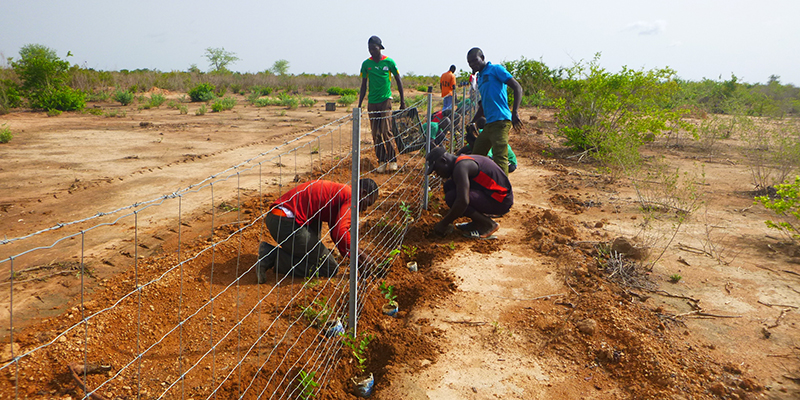An agriculturist, Mr Chekwube Nwana, says mismanagement of land such as harvesting too much vegetation too quickly is one of the causes of desertification.

Nwana, the former Supervisor for Agriculture, Oji River Local Government Council, Enugu State, said this in an interview with News Agency of Nigeria (NAN) in Abuja on Thurday, December 28, 2017.
He said that, with an estimated 135 million people at risk of being driven from their lands because of continuing desertification, the world must focus more on reversing this trend.
“According to the United Nation about six million hectares of productive land have been lost every year around the world as the land becomes degraded and less fertile.
“This desertification contributes to food insecurity, famine and poverty, and can give rise to social, economic and political tensions that can cause conflicts, further poverty and land degradation.’’
He said that creeping desertification, particularly in the northern part of the country, had induced large migration movements as locals who once farmed in now arid areas seek a living elsewhere.
He said that practical measures must be taken to prevent and restore degraded land.
He advised other agriculturists to always be involved in agro-forestry as a measure of curbing desertification and also for economic gains and to prevent and restore degraded land.
“Agriculture contributes to global greenhouse gas emissions, but emerging practices in land management have the potential to curtail these emissions; and reverse much of the ecological and climate harm caused by overly intensive systems.
“We must cultivate and conserve trees through agro-forestry, which is an important climate-smart solution with many important co-benefits.’’
He said that incorporating trees had shown to increase crop productivity, improve nutrient cycling, create and change microclimates, and more.
“Because of its carbon sequestration potential, agro-forestry has been for many years considered a leading agricultural practice for reducing climate impact.
“Carbon sequestration is the process by which carbon is pulled from the atmosphere and stored elsewhere.
“Agroforestry can improve and restore soil quality in degraded land, reduce climate pressure and biodiversity, and strengthen local economies,’’ he said.
By Ebere Agozie
